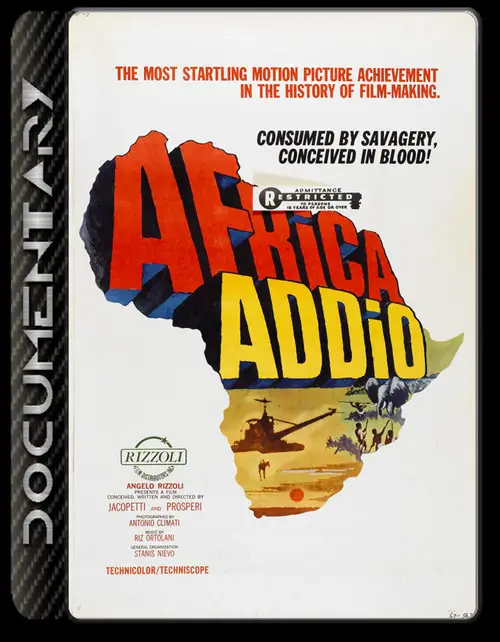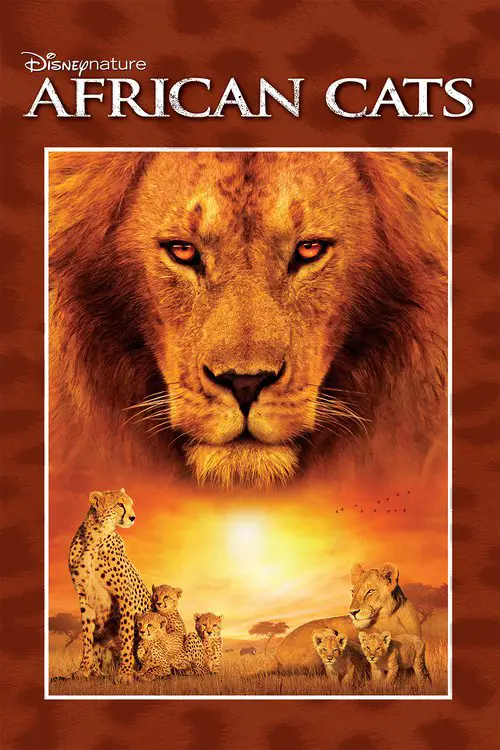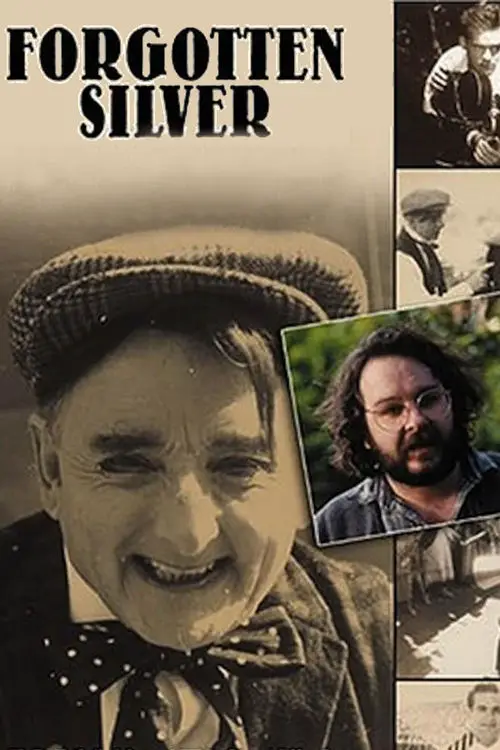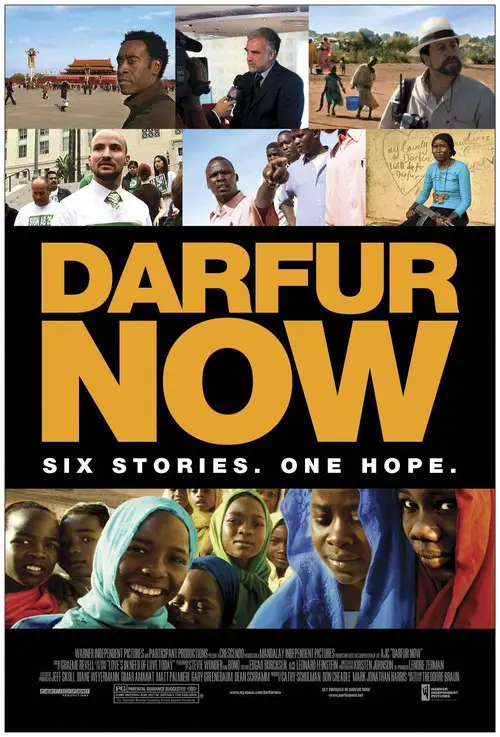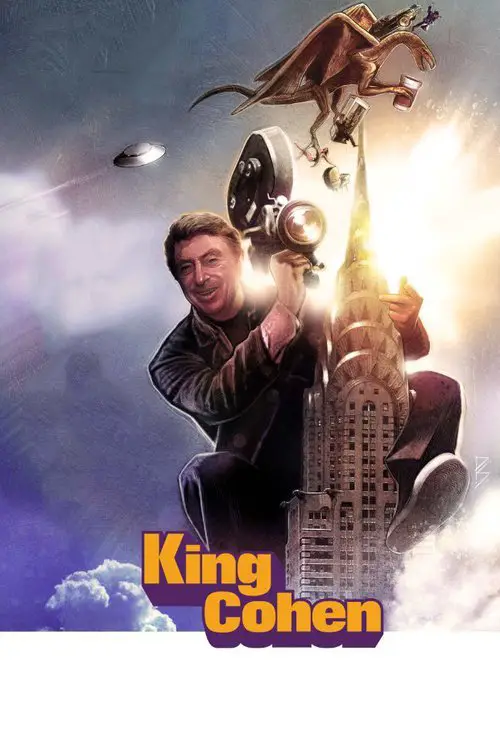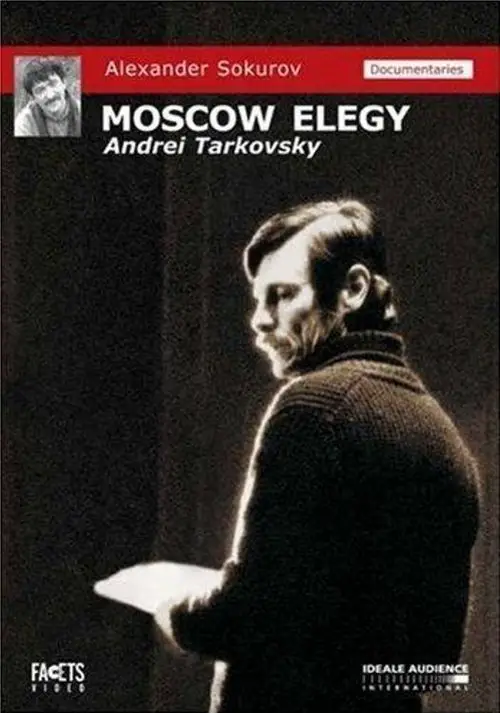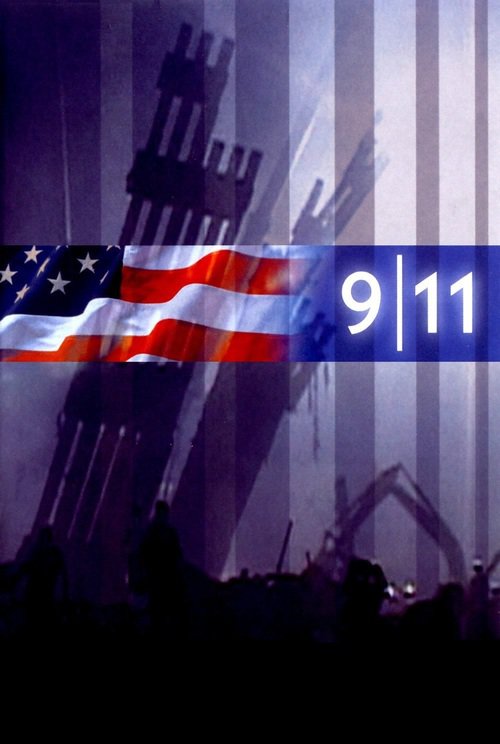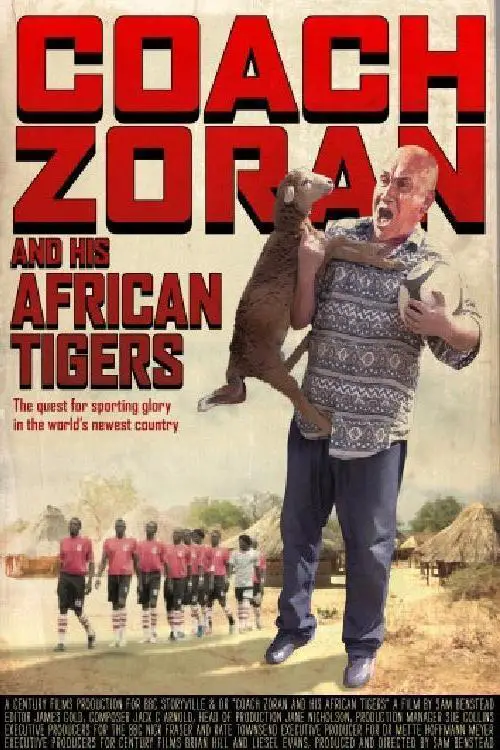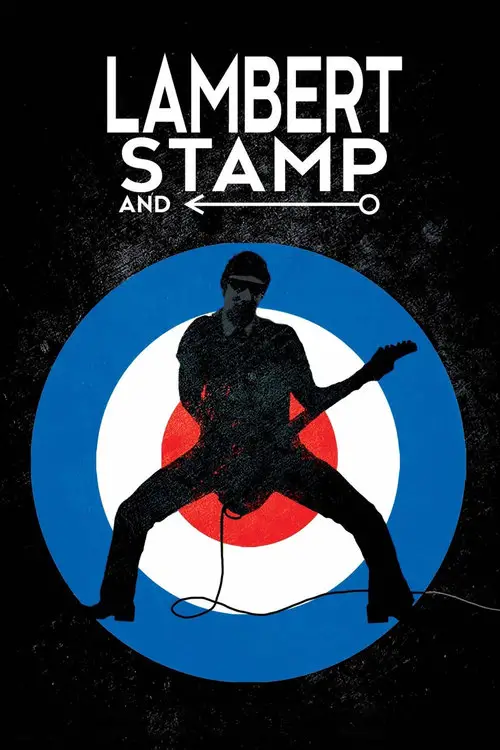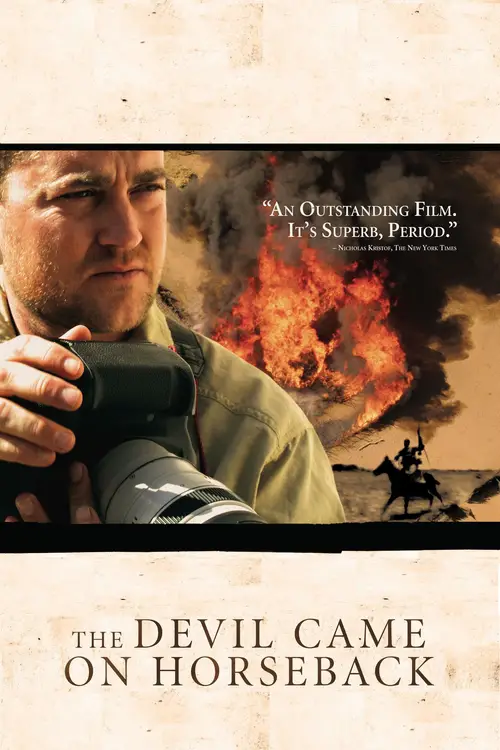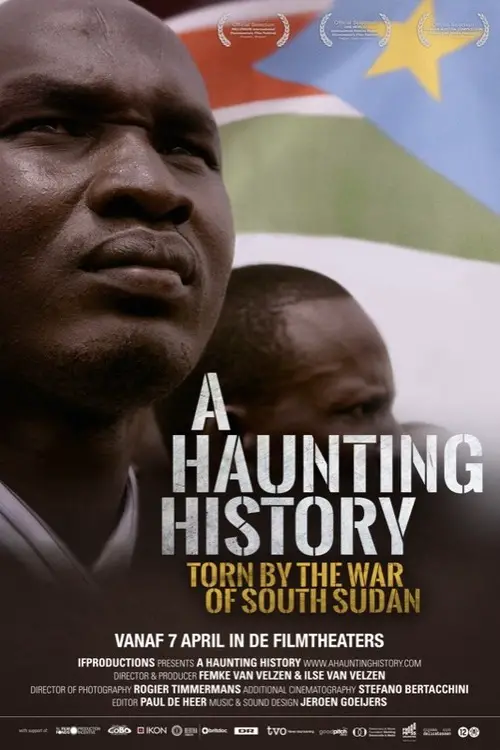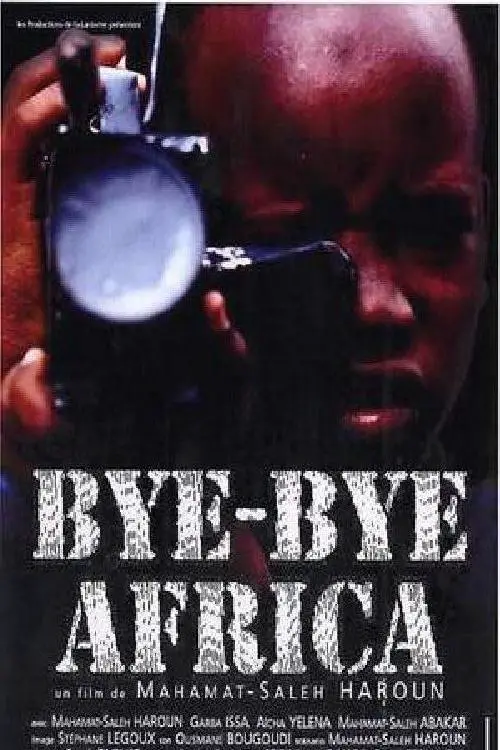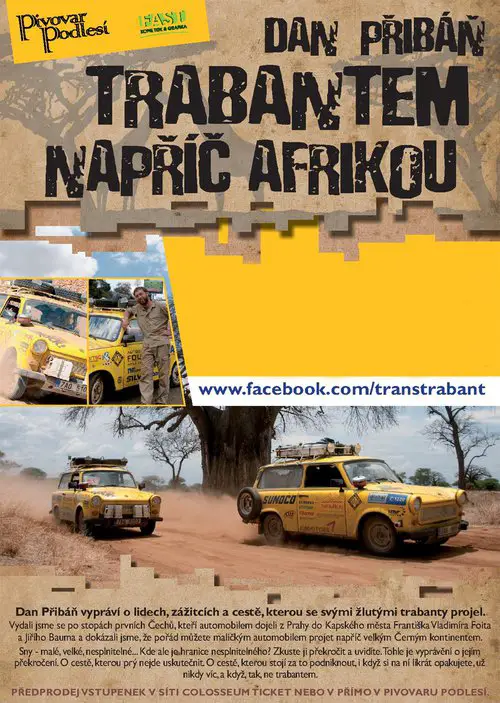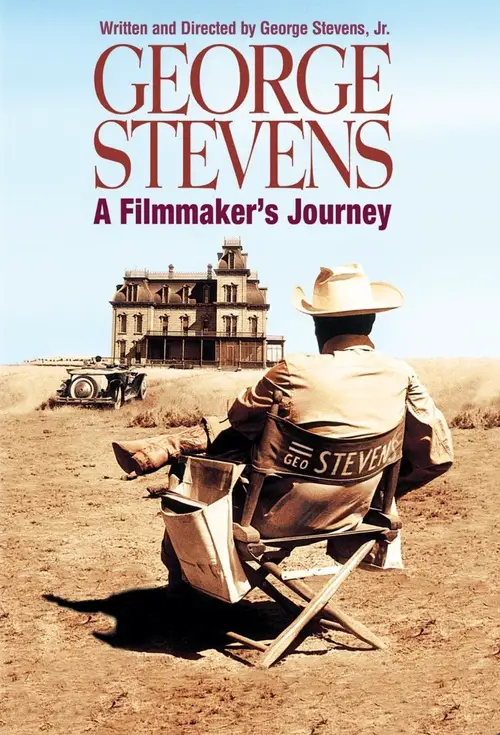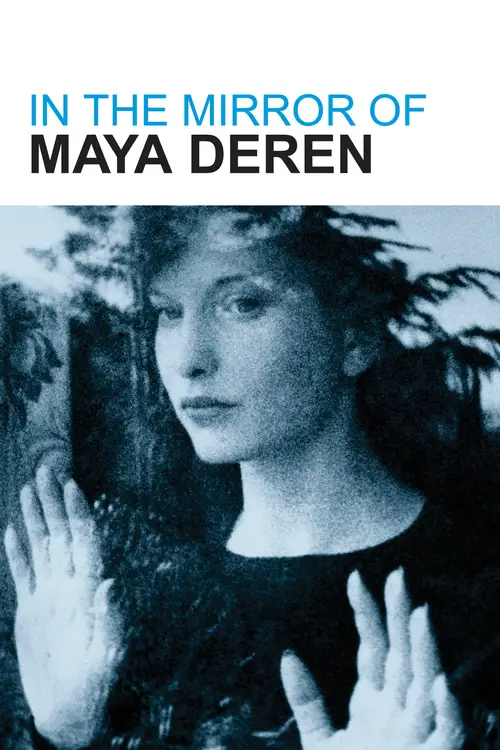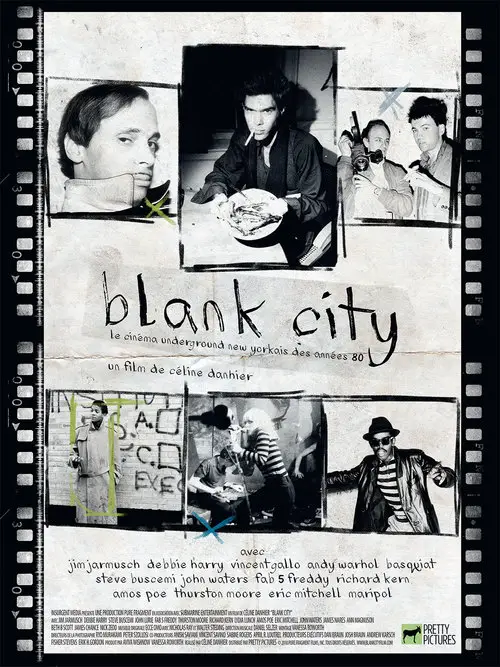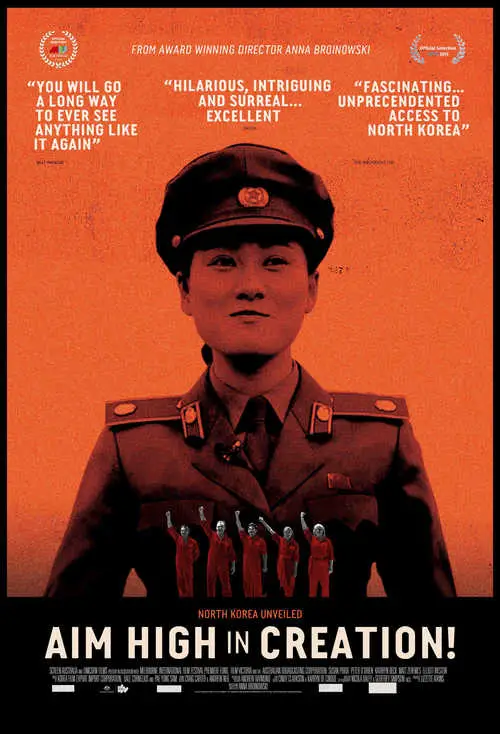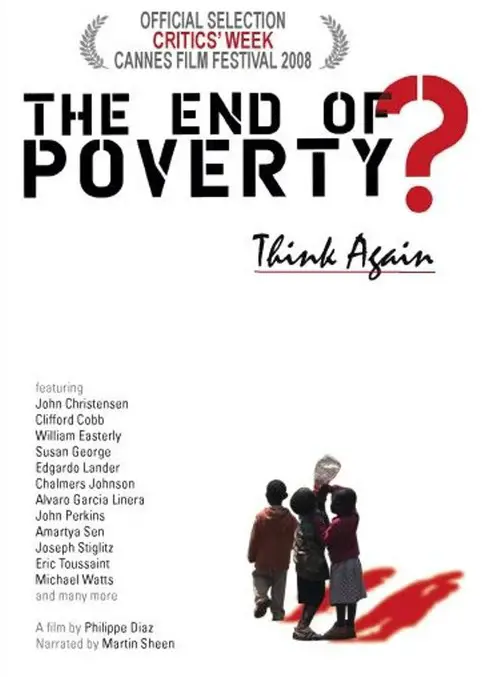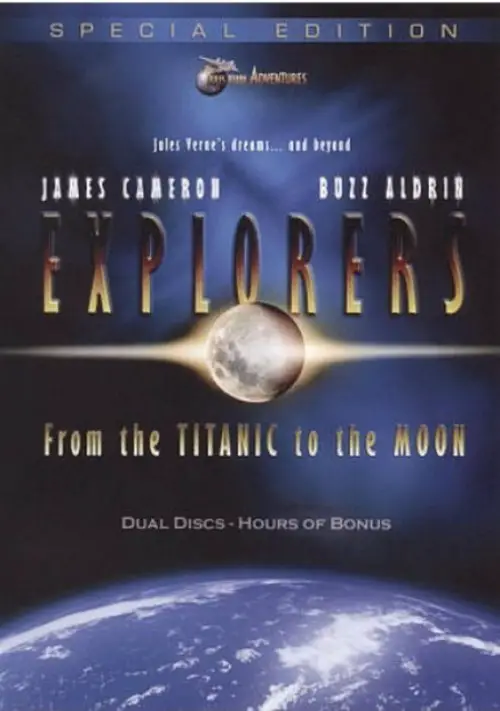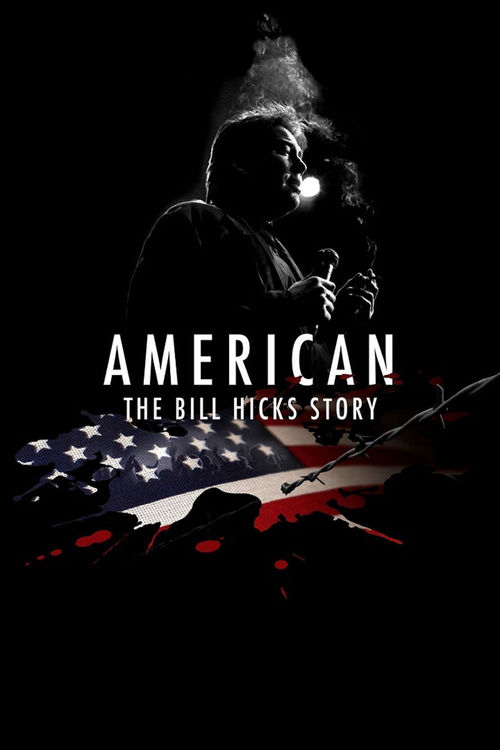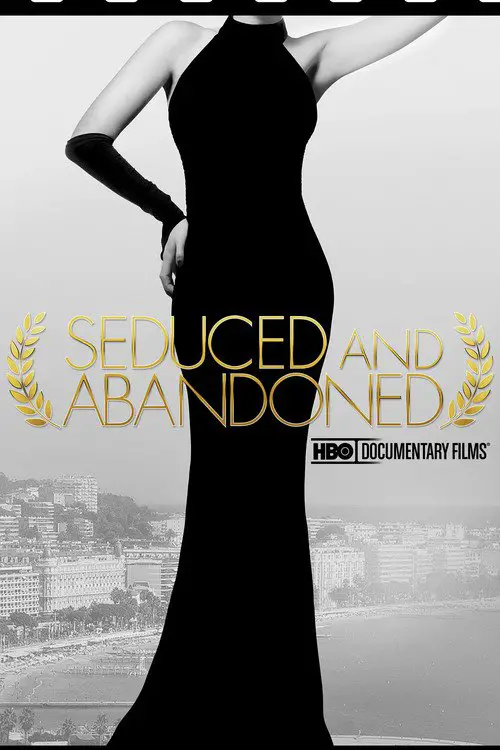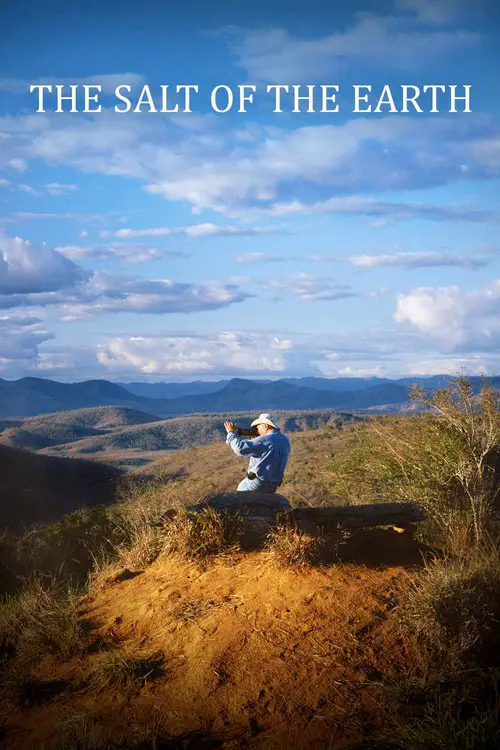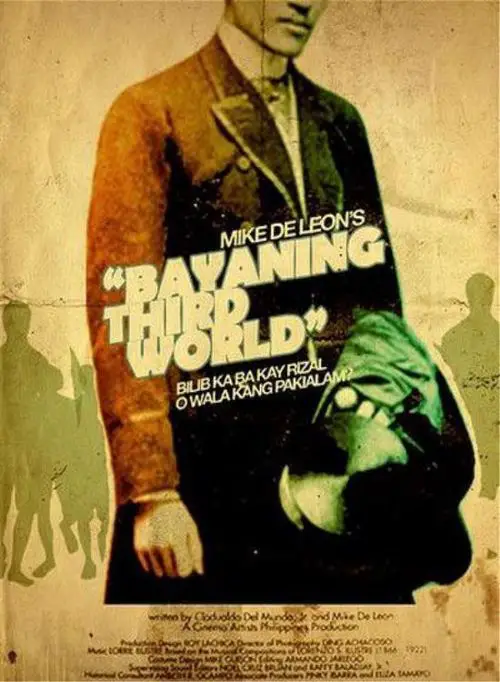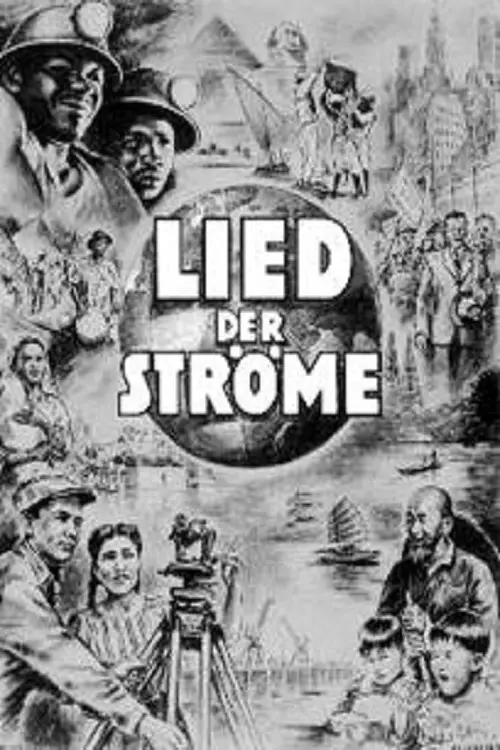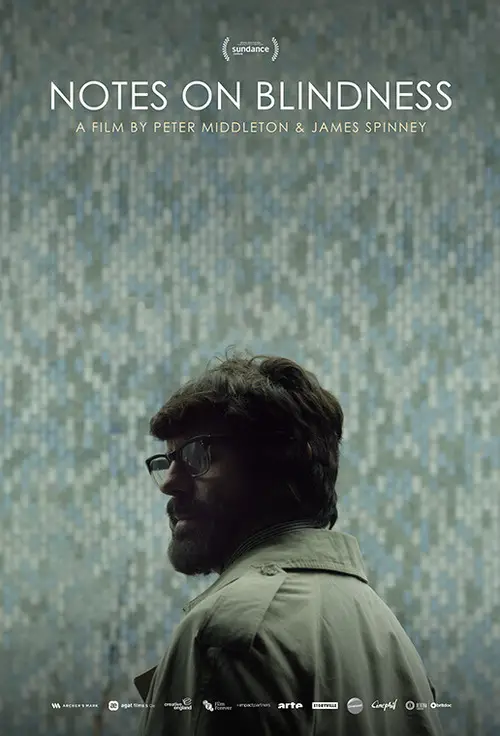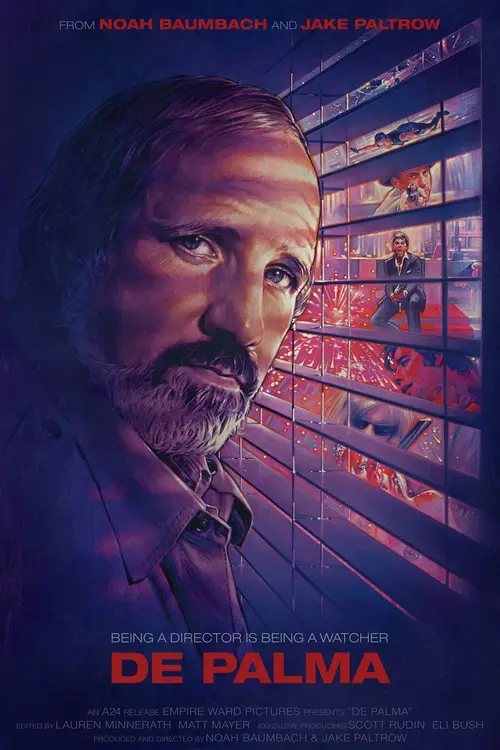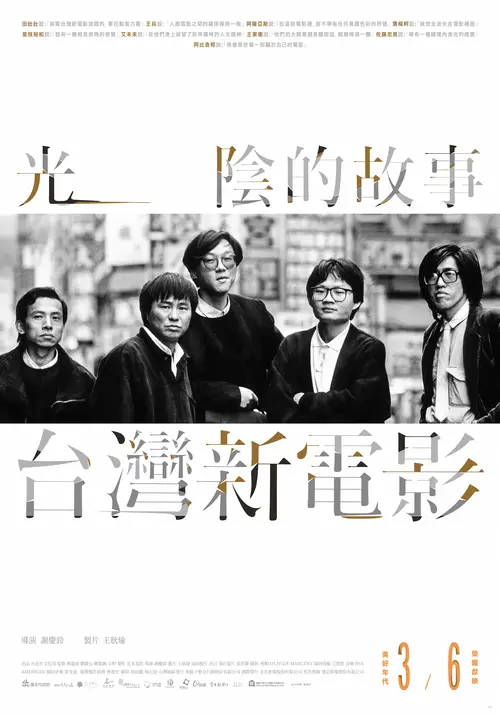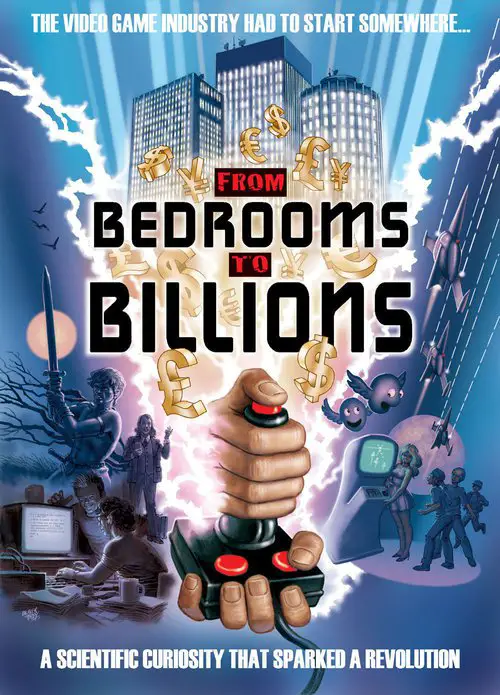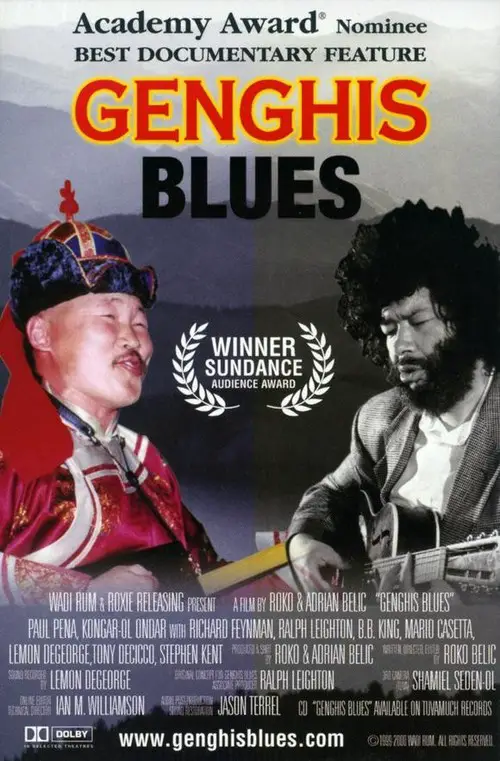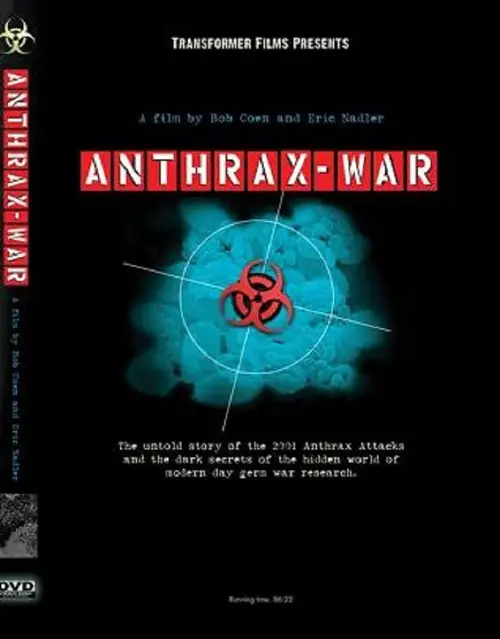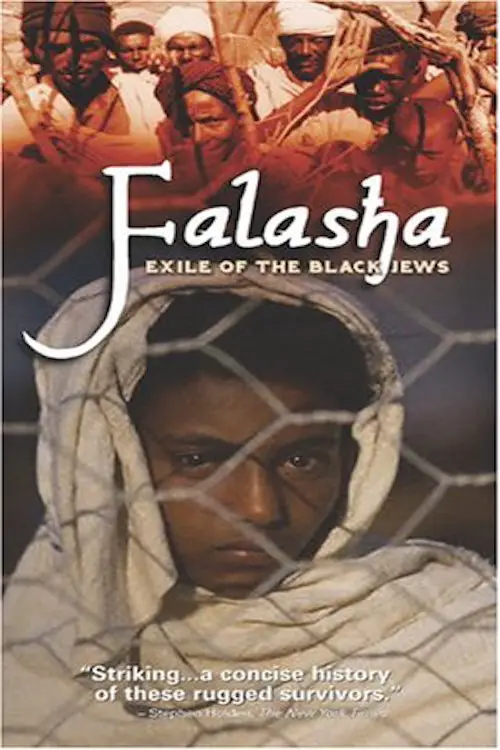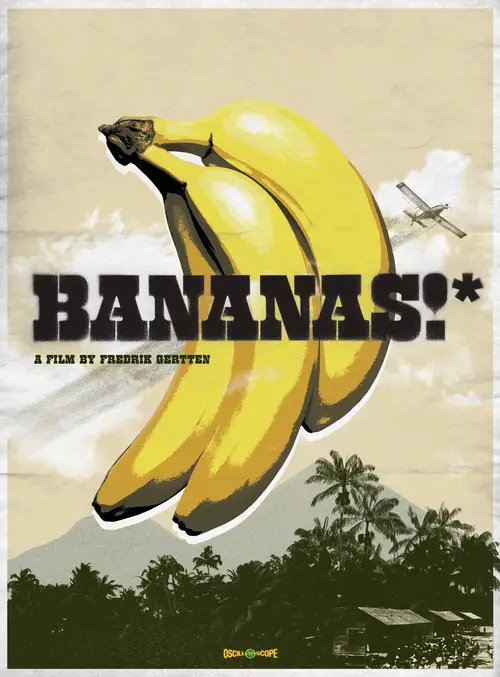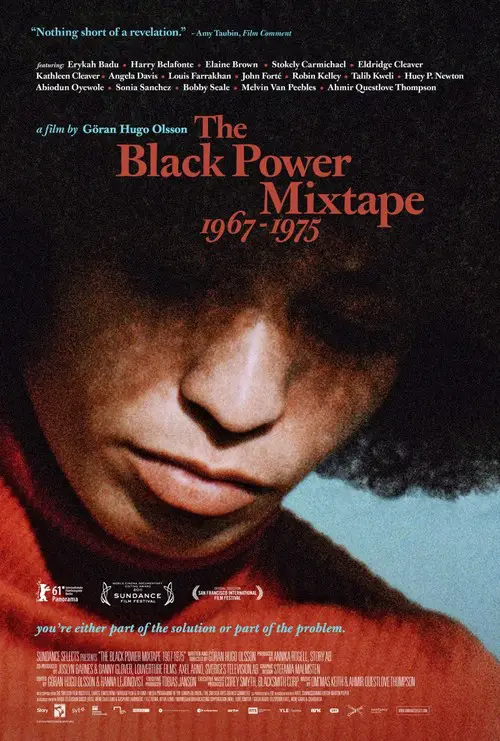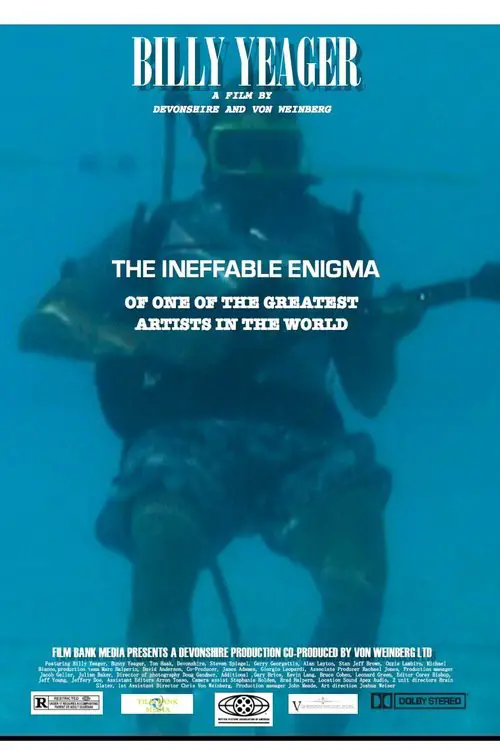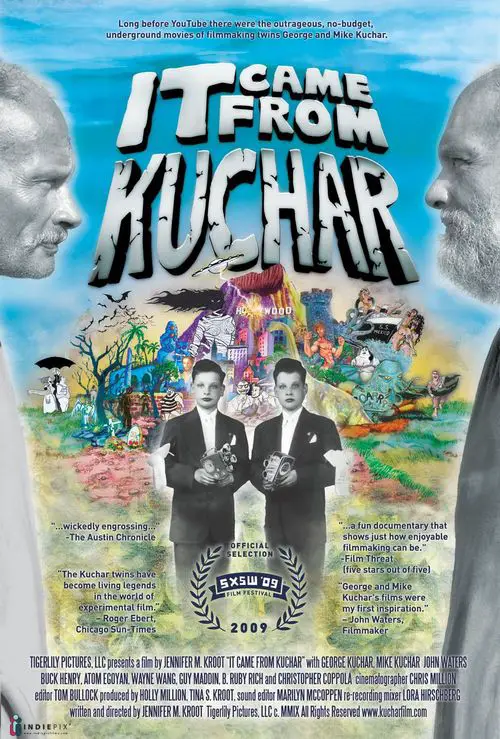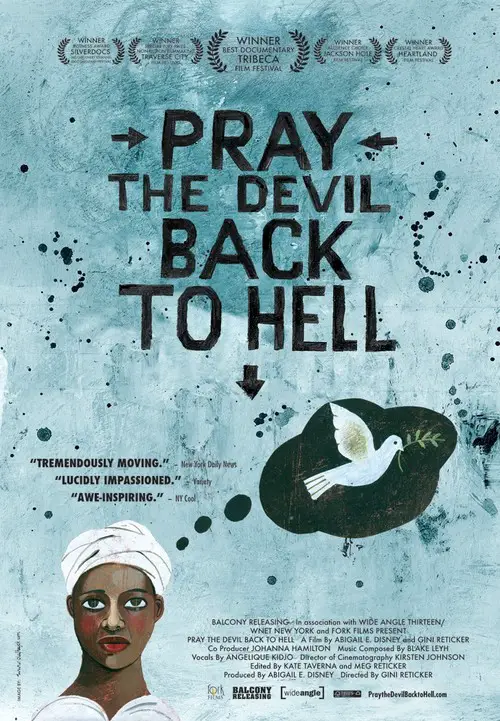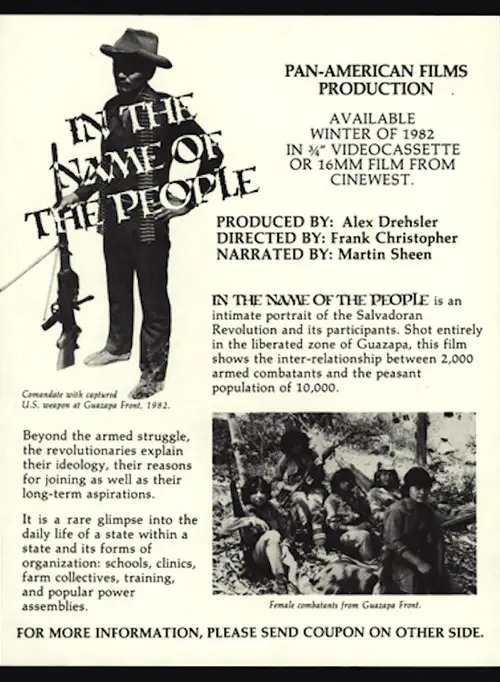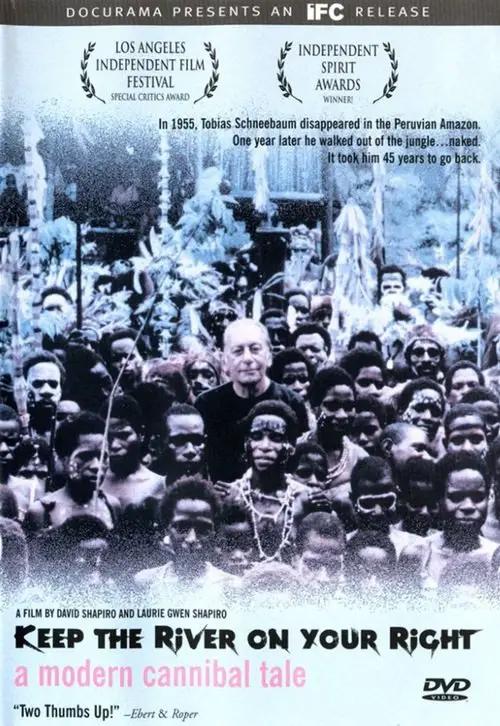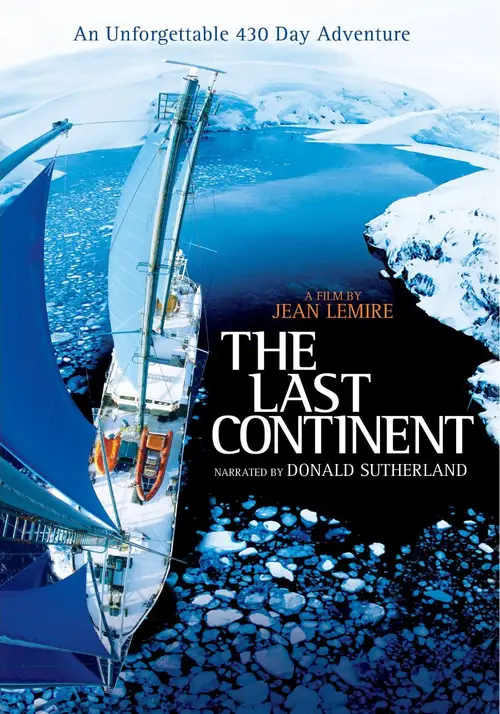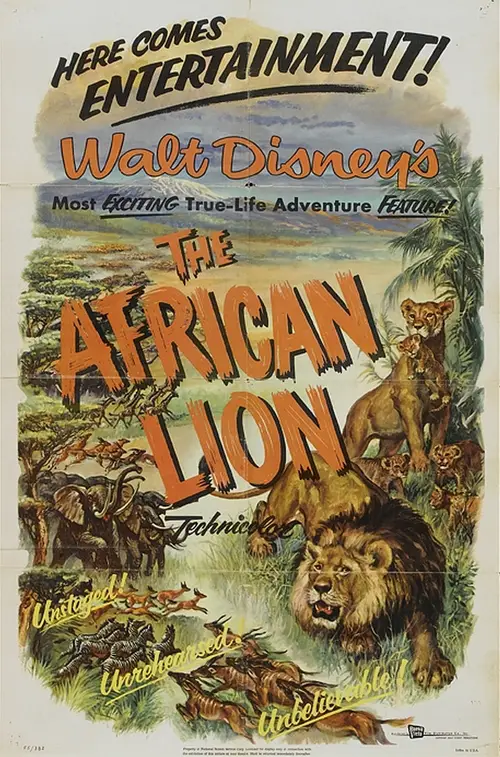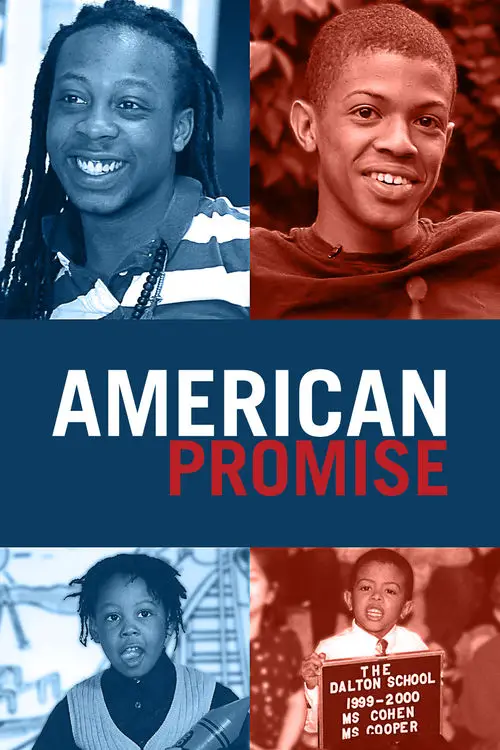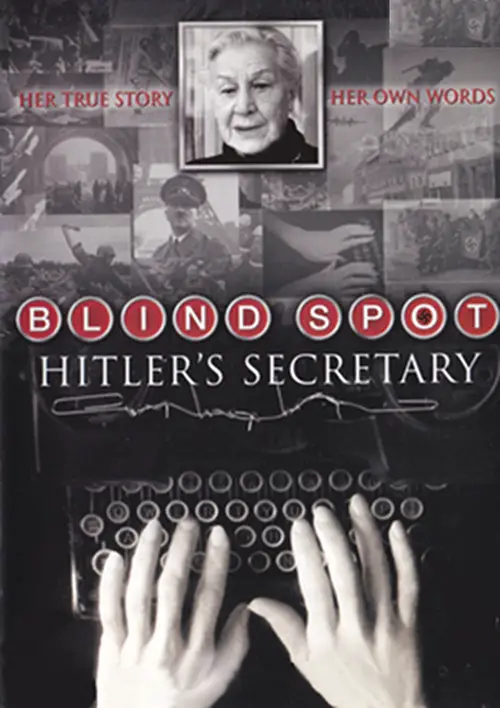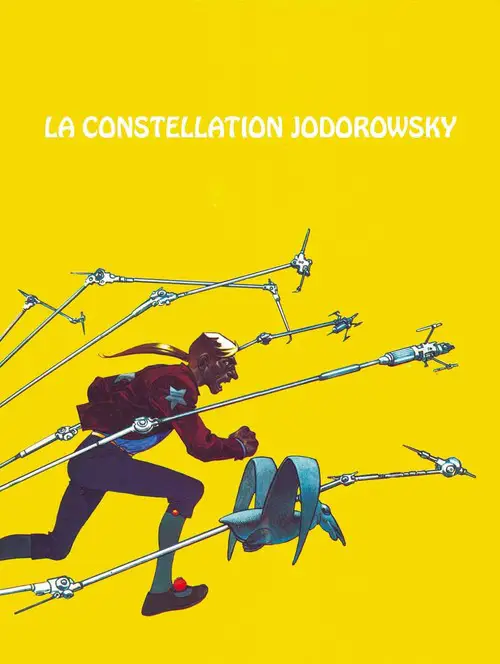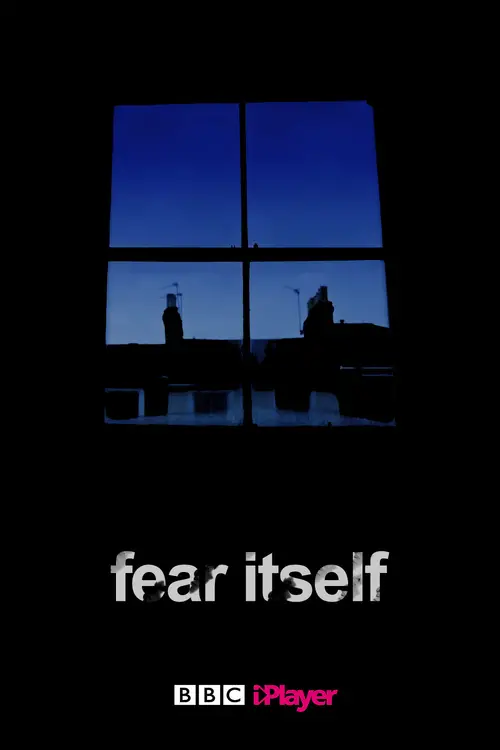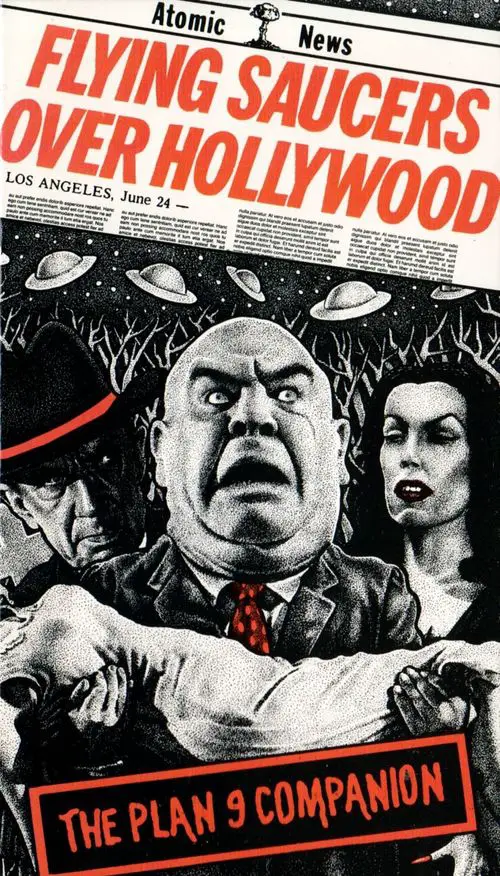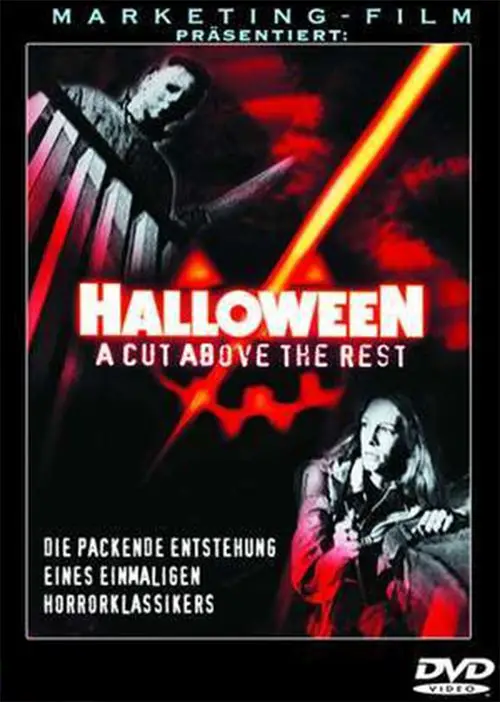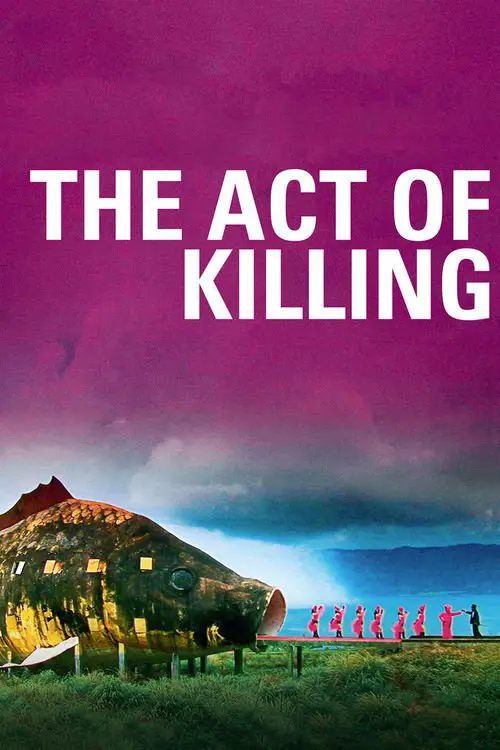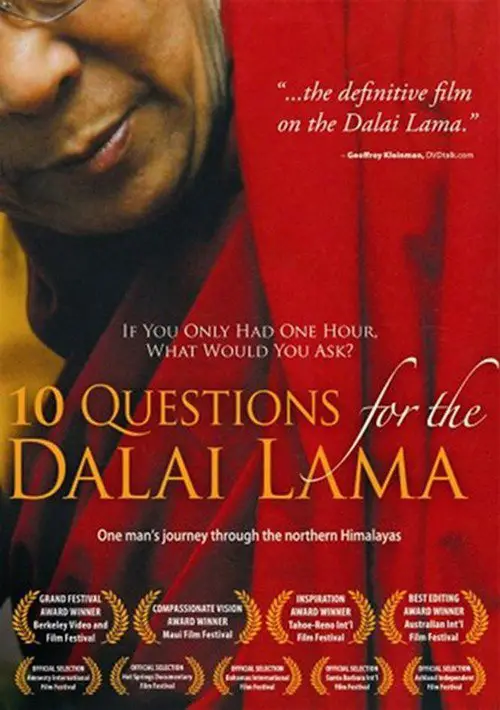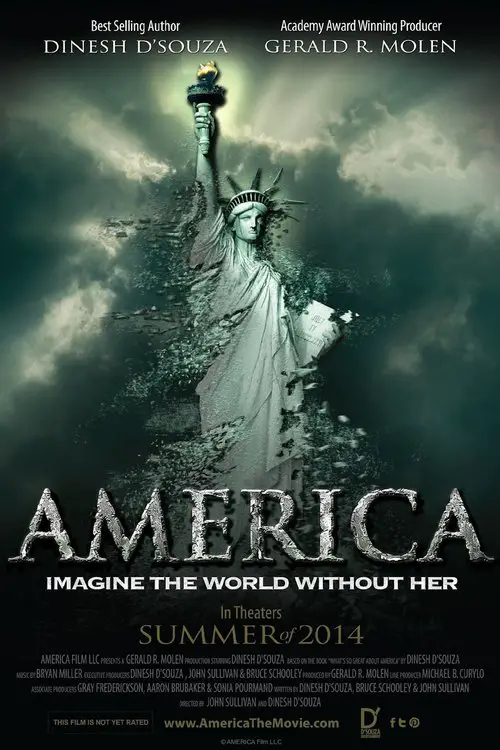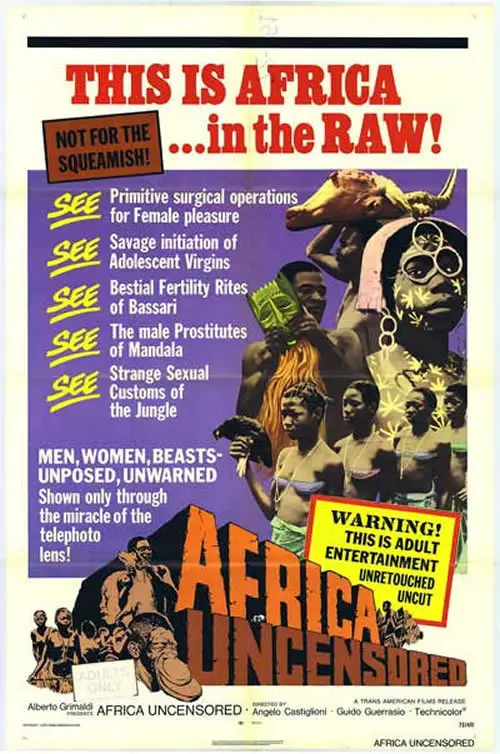Cinema in Sudan: Conversations with Gadalla Gubara (2008)
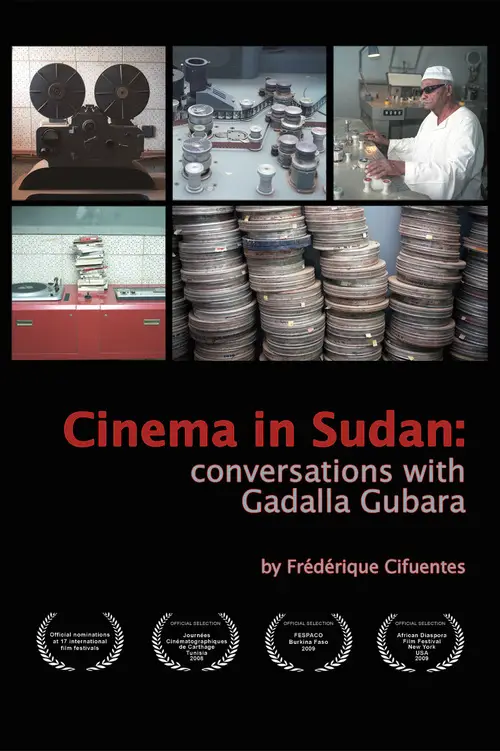
Similar movies
AMERICAN MOVIE is the story of filmmaker Mark Borchardt, his mission, and his dream. Spanning over two years of intense struggle with his film, his family, financial decline, and spiritual crisis, AMERICAN MOVIE is a portrayal of ambition, obsession, excess, and one man's quest for the American Dream.
GOD GREW TIRED OF US explores the indomitable spirit of three âLost Boysâ from the Sudan who leave their homeland, triumph over seemingly insurmountable adversities and move to America, where they build active and fulfilling new lives but remain deeply committed to helping the friends and family they have left behind.
African Cats captures the real-life love, humor and determination of the majestic kings of the savanna. The story features Mara, an endearing lion cub who strives to grow up with her motherâs strength, spirit and wisdom; Sita, a fearless cheetah and single mother of five mischievous newborns; and Fang, a proud leader of the pride who must defend his family from a once banished lion.
This dryly funny mockumentary about the lost work of a pioneering New Zealand film genius is probably one of the best examples of the faux-documentary genre. In fact, it was so successful that when it originally aired on New Zealand television, hundreds of viewers bought the premise hook, line, and sinker. If you didn't know any better yourself, it's entirely possible you might be duped into believing the extremely tall tale of one Colin MacKenzie, an ambitious filmmaker who made the world's first talking movie (years before The Jazz Singer), invented color film, and created a huge biblical epic that would put Cecil B. DeMille and D.W. Griffith to shame. Filmmaker Peter Jackson (Heavenly Creatures) shrewdly inserts himself into the film via his documentation of the "discovery" of McKenzie's lost epic, which for years was preserved in a garden shed.
This acclaimed documentary follows the story of six people who are determined to end the sufferings in Sudan's war-ravaged Darfur. The six - an American activist, an international prosecutor, a Sudanese rebel, a sheikh, a leader of the World Food Program and an internationally known actor - demonstrate the power of how one individual can create extraordinary changes.
A 1988 documentary film directed by Alexander Sokurov, about the later life and death of Soviet Russian filmmaker Andrei Tarkovsky. The film was originally intended to mark the 50th birthday of Tarkovsky in 1982, which would have been before his death. Controversy with Soviet authorities about the film's style and content led to significant delays in the production.
The struggle to eradicate apartheid in South Africa has been chronicled over time, but no one has addressed the vital role music plays in this challenge. This documentary by Lee Hirsch recounts a fascinating and little-known part of South Africa's political history through archival footage, interviews and, of course, several mesmerizing musical performances.
Unlike the films "World Trade Center" and "United 93", which are dramatizations of the events of September 11, this is an on-the-scene documentary following the events of September 11 from an insider's view, through the lens of two French filmmakers who were in Manhattan on that fateful day. Filmmakers James Hanlon and Jules and Gedeon Naudet were filming a documentary about a rookie New York City firefighter when they noticed a plane fly overhead and hit the World Trade Center. Being with those firefighters who where the first to respond to the tragedy, James Hanlon and the Naudets accompanied them and continued filming from the firemen's perspective. It later became known that their presence allowed them to capture the only known footage of the first plane strike, and from inside the Twin Towers.
While serving with the African Union, former Marine Capt. Brian Steidle documents the brutal ethnic cleansing occuring in Darfur. Determined that the Western public should know about the atrocities he is witnessing, Steidle contacts New York Times reporter Nicholas Kristof, who publishes some of Steidle's photographic evidence.
Haunted by his violent past, the ambitious lawyer Anuol returns to his homeland, South Sudan, committed to serve his country and hold accountable those who are responsible. But his quest, led by the rules of law, hits a wall when he is confronted with his countrymenâs reluctance to reconcile with history.
Since the invention of cinema, the standard format for recording moving images has been film. Over the past two decades, a new form of digital filmmaking has emerged, creating a groundbreaking evolution in the medium. Keanu Reeves explores the development of cinema and the impact of digital filmmaking via in-depth interviews with Hollywood masters, such as James Cameron, David Fincher, David Lynch, Christopher Nolan, Martin Scorsese, George Lucas, Steven Soderbergh, and many more.
A Chadian film director who lives and works in France (Haroun) returns home upon the death of his mother. He is shocked at the degraded state of the country and the national cinema. The filmmaker decides to make a film dedicated to his mother entitled Bye Bye Africa but immediately encounters major problems. Cinemas have closed and financing is impossible to secure. The director reunites with an old girlfriend (Yelena), who was shunned by Chadians who could not distinguish between film and reality after appearing in one of his previous films as an HIV victim. Haroun learns about the destruction of the African cinema from directors in neighboring countries, but also finds Issa Serge Coelo shooting his first film, Daressalam. Things go badly and, convinced that it is impossible to make films in Africa, Haroun departs Chad in despair, leaving his film camera to a young boy who had been assisting him.
Take a trip back to a time when New York City wasn't all glitz and glamour as filmmaker Celine Danhier offers a look at the birth of "No Wave Cinema" and the vibrant art scene that exploded out of the East Village in the late '70s. In the years before Ronald Reagan took office, Manhattan was in ruins. But true art has never come from comfort, and it was precisely those dire circumstances that inspired artists like Jim Jarmusch, Lizzy Borden, and Amos Poe to produce some of their best works. Taking their cues from punk rock and new wave music, these young maverick filmmakers confronted viewers with a stark reality that stood in powerful contrast to the escapist product being churned out by Hollywood. ~ Jason Buchanan, Rovi
A revolutionary film about the cinematic genius of North Korea's late Dear Leader Kim Jung-IL, with a groundbreaking experiment at its heart - a propaganda film, made according to the rules of his 1987 manifesto. Through the shared love of cinema, AIM HIGH IN CREATION! forges an astonishing new bond between the hidden filmmakers of North Korea and their Free World collaborators. Revealing an unexpected truth about the most isolated nation on earth: filmmakers, no matter where they live, are family.
The End of Poverty? asks if the true causes of poverty today stem from a deliberate orchestration since colonial times which has evolved into our modern system whereby wealthy nations exploit the poor. People living and fighting against poverty answer condemning colonialism and its consequences; land grab, exploitation of natural resources, debt, free markets, demand for corporate profits and the evolution of an economic system in in which 25% of the world's population consumes 85% of its wealth. Featuring Nobel Prize winner Amartya Sen and Joseph Stiglitz, authors/activist Susan George, Eric Toussaint, Bolivian Vice President Alvaro Garcia Linera and more.
From the explorers / filmmakers of Amazon Trek and Whales of Atlantis Join two men on their expeditions to new frontiers, from the Abyss to Outer Space... Explorers takes off from the compelling visions imagined by one of the worlds most widely read novelists, pioneer science-fiction writer Jules Verne, author of 20,000 Leagues under the Sea and From the Earth to the Moon. Discover the unbelievable journeys of two legendary explorers: Buzz Aldrin, who, along with Neil Armstrong, became the first men to set foot on the Moon during the Apollo 11 Mission; and James Cameron, multiple Academy Award winning filmmaker, who since completing his epic movie Titanic, has undertaken the exploration of the oceans mysteries utilizing revolutionary submarines and 3D cameras of his own design. Jean-Jules Verne opens his great-grandfathers novels and sends us on our journey with two men who actualize the fantastic dreams of Jules Verne.
American: The Bill Hicks Story is a biographical documentary film on the life of comedian Bill Hicks. The film was produced by Matt Harlock and Paul Thomas, and features archival footage and interviews with family and friends, including Kevin Booth. The filmmakers used a cut-and-paste animation technique to add movement to a large collection of still pictures used to document events in Hicks' life. The film made its North American premiere at the 2010 South by Southwest Film Festival. The film was nominated for a 2010 Grierson British Documentary Award for the "Most Entertaining Documentary" category. It was also nominated for Best Graphics and Animation category in the 2011 Cinema Eye Awards. Awards won include The Dallas Film Festivals Texas Filmmaker Award, at Little Rock The Oxford American's Best Southern Film Award, and Best Documentary at the Downtown LA Film Festival. On Rotten Tomatoes, 81% of the first 47 reviews counted were rated positive.
Hugo Chavez, Elected president of Venezuela in 1998, is a colorful, unpredictable folk hero, beloved by his nationâs working class â and a tough-as-nails, quixotic opponent to the power structure that would see him deposed. Two independent filmmakers were inside the presidential palace on April 11, 2002, when he was forcibly removed from office.
SEDUCED AND ABANDONED combines acting legend Alec Baldwin with director James Toback as they lead us on a troublesome and often hilarious journey of raising financing for their next feature film. Moving from director to financier to star actor, the two players provide us with a unique look behind the curtain at the world's biggest and most glamourous film festival, shining a light on the bitter-sweet relationship filmmakers have with Cannes and the film business. Featuring insights from directors Martin Scorsese, 'Bernando Bertolucci' and Roman Polanski; actors Ryan Gosling and Jessica Chastain and a host of film distribution luminaries.
During the last forty years, the photographer Sebastião Salgado has been travelling through the continents, in the footsteps of an ever changing humanity. He has witnessed the major events of our recent history ; international conflicts, starvations and exodus⦠He is now embarking on the discovery of pristine territories, of the wild fauna and flora, of grandiose landscapes : a huge photographic project which is a tribute to the planet's beauty. Sebastião's Salgado's life and work are revealed to us by his son, Juliano, who went with him during his last journeys, and by Wim Wenders, a photographer himself.
Two filmmakers try to create a film venturing on the life of Jose Rizal. Before they do that, they try to investigate on the heroism of the Philippine national hero. Of particular focus is his supposed retraction of his views against the Roman Catholic Church during the Spanish regime in the Philippines which he expressed primarily through his two novels Noli Me Tangere and El Filibusterismo. The investigation was done mainly by "interviewing" key individuals in the life of Rizal such as his mother Teodora Alonso, his siblings Paciano, Trinidad, and Narcisa, his love interest and supposed wife Josephine Bracken, and the Jesuit priest who supposedly witnessed Rizal's retraction, Fr. Balaguer. Eventually, the two filmmakers would end up "interviewing" Rizal himself to get to the bottom of the issue.
The Song of the Rivers, or Das Lied der Ströme, is a 1954 documentary production by the East Germany's Deutsche Film-Aktiengesellschaft (DEFA). Dutch filmmaker Joris Ivens was the leading director. The sprawling film celebrates international workers movements along six major rivers: the Volga, Mississippi, Ganges, Nile, Amazon and the Yangtze. Shot in many countries by different film crews, and later edited by Ivens, Song of the Rivers begins with a lyrical montage of landscapes and laborers and proceeds to glorify labor and modern industrial machinery. The musical score is by Dmitri Shostakovich, with lyrics written by Berthold Brecht, and songs performed by German communism's star Ernst Busch and famous American actor, singer and activist Paul Robeson who also narrates. Song of the Rivers is an ode to international solidarity.
In the summer of 1983, just days before the birth of his first son, writer and theologian John Hull went blind. In order to make sense of the upheaval in his life, he began keeping a diary on audiocassette. Upon their publication in 1990, Oliver Sacks described the work as 'the most extraordinary, precise, deep and beautiful account of blindness I have ever read. It is to my mind a masterpiece.' With exclusive access to these original recordings, NOTES ON BLINDNESS encompasses dreams, memory and imaginative life, excavating the interior world of blindness.
From Bedrooms to Billions is a 2014 documentary film by British filmmakers Anthony Caulfield and Nicola Caulfield that tells the story of the British video games industry from 1979 to the present day. The film focuses on how the creativity and vision of a relatively small number of individuals allowed the UK to play a key, pioneering role in the shaping of the billion dollar video games industry which today dominates the modern world's entertainment landscape. The film features interviews with major British game designers, journalists and musicians from across the last 30 years.
Blind blues musician Paul Pena is perhaps best known for his song "Jet Airliner". In 1993, Pena heard Tuvan throat singing over his shortwave radio and subsequently taught himself how to reproduce these extraordinary sounds. This documentary follows him to Tuva, where he takes part in a throat singing competition.
The story of a race against time to help preserve the untouched forests of Burma and its wildlife. For the first time in over 50 years, a team of wildlife filmmakers from the BBC's Natural History Unit and scientists from the world renowned Smithsonian Institution has been granted access to venture deep into Burma's impenetrable jungles. Their mission is to discover whether these forests are home to iconic animals, rapidly disappearing from the rest of the world.
This fiction-documentary hybrid uses a sensational real-life eventâthe arrest of a young man on charges that he fraudulently impersonated the well-known filmmaker Mohsen Makhmalbafâas the basis for a stunning, multilayered investigation into movies, identity, artistic creation, and existence, in which the real people from the case play themselves.
Juan âAccidentesâ Dominguez is on his biggest case ever. On behalf of twelve Nicaraguan banana workers he is tackling Dole Food in a ground-breaking legal battle for their use of a banned pesticide that was known by the company to cause sterility. Can he beat the giant, or will the corporation get away with it? In the suspenseful documentary BANANAS!*, filmmaker Fredrik Gertten sheds new light on the global politics of food.
Billy Yeager produces films, has written and recorded over 2400 songs and has been discovered many times by several well known artist. Turning his back on the music and film industry, Yeager retreats into the Mojave Desert to make his films and create his music. Collectors from all over the world search for the lost recordings of Billy Yeager. He threw away over 1400 recorded songs in 2001 and now his record albums, handmade CDs and cassette tapes sell for some of the highest prices listed on "on-line auctions". The extremely rare "Jaco Pastorius / Billy Yeager" recordings are also highly sought after, but if it can't change the world, the artist wants no part of it. Yeager is not interested in money and fame; the filmmakers find him in the desert.
IT CAME FROM KUCHAR is the definitive, feature documentary about the legendary, underground filmmaking twins, the Kuchar brothers. George and Mike Kuchar have inspired two generations of filmmakers, actors, musicians, and artists with their zany, "no budget" films and with their uniquely enchanting spirits.
Pray The Devil Back To Hell documents a peace movement called Women of Liberia Mass Action for Peace. Organized by social worker Leymah Gbowee, the movement started with praying and singing in a fish market. [2] Leymah Gbowee organized the Christian and Muslim women of Monrovia, Liberia to pray for peace and to organize nonviolence protests. Dressed in white to symbolize peace, and numbering in the thousands, the women became a political force against violence and against their government.
In the Name of the People is a 1985 documentary film directed by Frank Christopher about the Salvadoran Civil War. The film follows four filmmakers who secretly entered El Salvador, marched with guerrillas across the country, and followed them into combat against government forces in San Salvador. It was nominated for an Academy Award for Best Documentary Feature.
In 1955, Tobias Schneebaum disappeared into the depths of the Peruvian Amazon. He had no guide, no map, and only the vaguest of instructions: Keep the river on your right. A year later Schneebaum emerged from the jungleâ¦naked, covered in body paint, and a modern-day cannibal. Titled after Schneebaumâs 1969 cult classic memoir about his formative experiences living in the Amazon, Keep The River On Your Right is the extraordinary stranger-than-fiction story of Schneebaumâs return to the jungle, 45 years after his original visit, to reunite with the very tribesmen he loved and who gave him nightmares for nearly half a century. A deeply affecting and searing portrait, sibling filmmakers Laurie and David Shapiro capture a man in utter conflict, a fearless adventurer, and one of the most charming, enigmatic, and perplexing men ever captured on screen.
In 2005, a small group of scientists and filmmakers agreed to leave everything behind for more than a year to sail to the Antarctic and live in isolation. Following in the path of the greatest explorers, expedition leader Jean Lemire and the crew of the Sedna IV dedicated themselves completely to measuring the threat posed by global warming in a place where Earth is particularly vulnerable. The resulting film, is a record of their incredible 430-day journey that inspires equal measures of fear and admiration. Alternating between captivating images of beauty and serenity, and spine-tingling sequences where the ship's crew finds itself on the edge of catastrophe, this is an expedition where danger and wonder are inextricably linked.
In 1999, filmmakers Joe Brewster and Michèle Stephenson turned the camera on themselves and began filming their five-year-old son, Idris, and his best friend, Seun, as they started kindergarten at the prestigious Dalton School just as the private institution was committing to diversify its student body. Their cameras continued to follow both families for another 12 years as the paths of the two boys divergedâone continued private school while the other pursued a very different route through the public education system.
Documentarians Andre Heller and Othmar Schmiderer turn their camera on 81-year-old Traudl Junge, who served as Adolf Hitler's secretary from 1942 to 1945, and allow her to speak about her experiences. Junge sheds light on life in the Third Reich and the days leading up to Hitler's death in the famed bunker, where Junge recorded Hitler's last will and testament. Her gripping account is nothing short of mesmerizing.
This documentary depicts the filmmaker Alejandro Jodorowsky talking about his life, his loves, his career as a filmmaker, graphic novelist, and workshop leader, and his eccentricities including tarot reader and theatrical director during The Panic Movement. Directed by Louis Mouchet, La Constellation Jodorowsky includes a lengthy on-camera interview with Jodorowsky in Spanish with subtitles. Marcel Marceau, Fernando Arrabal, Peter Gabriel, Jean "Moebius" Giraud, and Jean Pierre Vignau make appearances discussing their various projects with the director. In addition to the interview and film clips, Mouchet features some bizarre footage from Jodorowskyâs absurdist plays in which topless women splattered with paint writhe around the stage in a theatrical production meant to represent The Panic Movement, i.e., an artistic expression in which reason cannot fully express the human experience.
Using original interviews with director John Carpenter, stars Jamie Lee Curtis and P.J. Soles, and crew members, Halloween: A Cut Above The Rest unveils the production of the horror classic and how the ingenuity of Carpenter and his team, coupled with the shoestring budget of $325,000, drove the filmmakers to create one of the most influential horror films of all time.
In a place where killers are celebrated as heroes, these filmmakers challenge unrepentant death-squad leaders to dramatize their role in genocide. The result is a surreal, cinematic journey, not only into the memories and imaginations of mass murderers, but also into a frighteningly banal regime of corruption and impunity.
How do you reconcile a commitment to non-violence when faced with violence? Why do the poor often seem happier than the rich? Must a society lose its traditions in order to move into the future? These are some of the questions posed to His Holiness the Dalai Lama by filmmaker and explorer Rick Ray. Ray examines some of the fundamental questions of our time by weaving together observations from his own journeys throughout India and the Middle East, and the wisdom of an extraordinary spiritual leader. This is his story, as told and filmed by Rick Ray during a private visit to his monastery in Dharamsala, India over the course of several months. Also included is rare historical footage as well as footage supplied by individuals who at great personal risk, filmed with hidden cameras within Tibet.
Political commentator, author and filmmaker Dinesh D'Souza puts forth the notion that America's history is being replaced by another version in which plunder and exploitation are the defining characteristics. D'Souza also posits that the way the country understands the past will determine the future. Using historic re-enactments, D'Souza explores the lives and sacrifices of some of America's greatest heroes, including George Washington and Frederick Douglass.
© Valossa 2015–2026
| Privacy Policy
